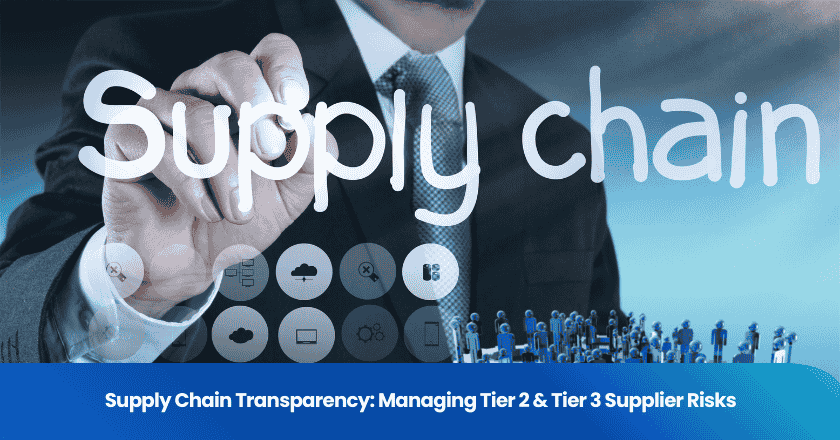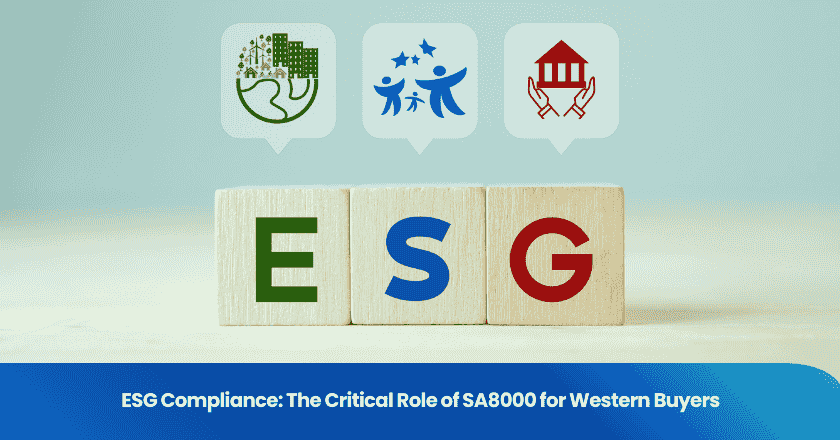
Preface
In the rapidly changing business environment, ensuring the quality of software products or services is crucial for the sustained success of enterprises. Quality assurance (QA), as an indispensable part of the software development process, directly impacts the user experience of the product, market competitiveness, and corporate reputation. However, with the growth of business demands and the increase in technical complexity, many enterprises face challenges such as insufficient internal QA resources or a lack of professional skills. At this time, outsourcing quality assurance services becomes a flexible and efficient solution. This article aims to explore the concept, importance, advantages, and potential risks of outsourcing QA services for enterprises, helping decision-makers make informed choices between outsourcing or not.
Delve into the mysteries of QA outsourcing
In today's fiercely competitive business environment, enterprises have an unprecedented pursuit for the quality and release speed of software products. As an efficient and flexible quality management strategy, QA outsourcing is gradually becoming the preferred choice for many enterprises.
What is QA outsourcing?
QA outsourcing, in brief, refers to a business practice where an enterprise outsources its internal quality assurance processes or specific QA functions to professional third-party service providers. These services extend beyond traditional testing strategy formulation and test case design, encompassing multiple dimensions such as automated test execution, defect management, performance testing, and security testing. By outsourcing, enterprises can leverage the professional capabilities of service providers to comprehensively enhance the quality and market responsiveness of software products.
Specifically, QA outsourcing services can include, but are not limited to:
Test strategy formulation: Customized test strategy planning based on enterprise needs and product characteristics.
Test case design and execution: Efficient and comprehensive test case design, as well as precise execution and result analysis.
Automated testing: Utilizing advanced tools and technologies to automate the testing process and enhance testing efficiency.
Defect management: comprehensive management encompassing the entire process from defect discovery, recording, tracking, to repair verification.
QA outsourcing is widely applicable, encompassing nearly all industries reliant on software development. In the field of financial technology, strict data security and compliance requirements make QA outsourcing a crucial means of ensuring system stability and security. The e-commerce industry utilizes outsourcing to address frequent product iterations and user experience optimization needs. The healthcare industry relies on QA outsourcing to ensure the accuracy and reliability of medical software systems. Lastly, the gaming and entertainment industry leverages outsourcing to expedite game testing and enhance player experience.
Why is outsourcing QA a wise choice for enterprises?
Outsourcing QA services can significantly reduce the costs of human recruitment, training, and daily team maintenance for enterprises. Compared to self-built QA teams, the outsourcing model allows enterprises to flexibly adjust their investment according to project needs, avoid resource idleness, and achieve optimal cost utilization. In addition, outsourcing service providers can usually offer more competitive prices, further reducing the overall testing costs for enterprises.
External QA service providers often possess rich experience and professional knowledge across various industries. They are not only familiar with the latest testing methods and technologies, but also capable of providing customized testing solutions tailored to the specific needs of enterprises. The introduction of such professional knowledge can significantly enhance testing efficiency and quality, ensuring that software products are launched on the market in their optimal state.
Outsourcing QA tasks to professional service providers enables enterprises to focus their energy and resources on core businesses such as product development and market strategy. This focus not only helps accelerate time to market but also enhances the overall competitiveness of the enterprise. By outsourcing, enterprises can respond more flexibly to market changes and quickly seize opportunities.
Analysis of the Advantages of Outsourcing Quality Assurance Services
Under the dual pressures of pursuing efficiency and quality, outsourced quality assurance services, with their unique advantages, have become a wise choice for many enterprises to optimize resource allocation and enhance competitiveness.
Cost savings
The outsourcing model effectively avoids the high costs incurred by enterprises due to long-term talent recruitment and ongoing training. As plug-and-play resources, external QA teams can quickly integrate into projects and start working immediately, greatly reducing the time required for team formation and integration.
Outsourcing services allow enterprises to flexibly adjust QA resources according to the actual scale of the project, avoiding additional costs incurred due to idle resources. This on-demand resource allocation model enables enterprises to utilize funds more efficiently, converting every investment into tangible benefits.
Acquire cutting-edge professional knowledge
External QA teams are typically composed of experts with extensive industry experience and professional skills. They are capable of not only swiftly identifying and resolving complex quality issues but also providing enterprises with more forward-looking testing strategies and recommendations based on industry trends and best practices.
To maintain competitiveness, outsourcing service providers will continuously invest in the latest testing tools and technologies. This means that enterprises can enjoy improved testing efficiency and accuracy guarantees brought by these advanced tools and technologies without having to bear the high costs of research and development or procurement on their own.
Flexibility and scalability
With their high flexibility and responsiveness, outsourcing teams can quickly adjust testing strategies and resource allocation according to project requirements. Whether it's expanding the scope of testing, increasing the depth of testing, or compressing the testing cycle, the outsourcing team can adapt quickly to ensure maximum testing coverage and efficiency.
Facing the peak period of a project, enterprises often need to rapidly expand QA resources to ensure that the testing progress is not affected. Outsourcing services provide a solution for quickly expanding QA resources, which can provide the required manpower support for enterprises in a short period of time, ensuring that the project is delivered on time and the quality is not compromised.
In summary, outsourcing quality assurance services provide enterprises with an effective way to optimize resource allocation and enhance competitiveness, thanks to their significant cost savings, access to cutting-edge professional knowledge, and unparalleled flexibility and scalability. In the rapidly changing business environment, opting for outsourcing quality assurance services is undoubtedly one of the wisest decisions for enterprises.
Potential challenges of outsourcing quality assurance services
Although outsourcing quality assurance services bring many advantages to enterprises, it cannot be ignored that this model is also accompanied by a series of potential challenges and risks.
Communication challenges: Overcoming barriers of time, space, and culture
The outsourcing team and the enterprise may be located in different geographical locations, and the differences in working hours often lead to communication delays, which in turn affect collaboration efficiency. This time zone difference not only increases the difficulty of coordinating meetings and real-time communication, but also may prolong the time required to solve problems, posing challenges to the overall progress of the project.
Language and cultural differences are common communication barriers in outsourcing collaborations. Different expression methods and thinking habits may lead to deviations in the conveyance and understanding of testing requirements, thereby affecting the quality and accuracy of testing. To overcome this challenge, enterprises need to allocate more resources to communication and coordination, ensuring a mutual understanding of testing requirements between both parties.
Quality control: ensuring stable high quality
External teams may lack in-depth understanding of the specific standards, processes, and culture of the enterprise, which may lead to quality fluctuations during the testing process. To ensure consistency in testing quality, the enterprise needs to conduct adequate training and communication with the outsourcing team to clarify testing standards and expectations.
Over-reliance on a single outsourcing supplier may increase the risk exposure of enterprises. Once the supplier performs poorly or the partnership is disrupted, enterprises may face serious consequences such as shortage of testing resources and project delays. To reduce this risk, enterprises should establish a diversified supplier system and maintain close communication and supervision with suppliers.
Security and confidentiality: Safeguarding the core assets of enterprises
In outsourcing cooperation, the risk of sensitive data leakage cannot be overlooked. Enterprises need to sign strict data protection agreements with outsourcing teams, clarifying the norms for data usage, storage, and transmission. At the same time, enterprises should regularly review and evaluate the data protection measures of outsourcing teams to ensure the security and integrity of data.
Intellectual property is a valuable intangible asset for enterprises. In the process of outsourcing, ensuring that the intellectual property of the enterprise is not infringed or leaked is a legal issue that both parties need to focus on. Enterprises should protect their innovative achievements and trade secrets from being infringed by signing confidentiality agreements, clarifying the ownership of intellectual property, and other means.
Wise decision: Is outsourcing quality assurance services suitable for your enterprise?
Before deciding whether to outsource quality assurance services, enterprises need to conduct a comprehensive and in-depth self-assessment to ensure that this decision can truly contribute to the long-term development of the enterprise.
Conduct an in-depth assessment of your business needs
Firstly, enterprises need to conduct a comprehensive analysis of the skills, resources, and workload of their existing QA teams. This includes assessing the team's technical proficiency, testing experience, workload saturation, and whether there are any skill gaps. Through this step, enterprises can clearly recognize whether external support is needed to compensate for internal capacity shortcomings.
Next, enterprises need to clarify key elements such as the scope of testing, quality standards, and compliance requirements. These requirements will serve as important reference points for selecting outsourcing service providers, ensuring that the outsourced services precisely meet the specific needs of the enterprise, thereby safeguarding product quality and market competitiveness.
Thoroughly weigh the pros and cons of outsourcing
When deciding whether to outsource, enterprises need to comprehensively consider how outsourcing can support or hinder their long-term strategic goals and short-term business needs. Outsourcing should not only be able to address current testing needs, but also align with the overall business planning of the enterprise, providing strong support for its sustainable development.
The immediate cost savings brought by outsourcing are obvious, but enterprises also need to pay attention to its potential long-term impacts. This includes the potential impact of outsourcing on quality control, innovation capability enhancement, and the core competitiveness of the enterprise. Enterprises need to find the optimal balance between short-term cost savings and long-term value creation.
Practical Strategies for Successfully Implementing QA Outsourcing
When selecting an outsourcing supplier, enterprises should conduct a comprehensive evaluation based on their experience, reputation, technical strength, and service model. By comparing the strengths and weaknesses of different suppliers, enterprises can choose the partner that best meets their own needs, laying a solid foundation for the success of the outsourcing project.
Efficient communication is crucial for the success of outsourcing projects. Enterprises should ensure efficient and transparent communication mechanisms with the outsourcing team, including regular meetings, project management tools, and immediate information feedback channels. These communication mechanisms will help both parties solve problems and adjust strategies in a timely manner, ensuring the smooth progress of the project.
To monitor the performance of the outsourced team, enterprises need to establish clear key performance indicators (KPIs), such as defect detection rate and testing cycle time. These indicators can not only reflect the efficiency and quality level of the outsourced team's work but also provide objective data support for enterprises to adjust outsourcing strategies and optimize partnerships in a timely manner.
END
Outsourcing quality assurance services provides enterprises with an effective way to reduce costs, acquire professional knowledge, and enhance flexibility. Of course, it also brings challenges in communication, quality control, security, and confidentiality.
The ultimate decision on whether to outsource should be based on a deep understanding of the company's own needs, a comprehensive weighing of the pros and cons of outsourcing, and the adoption of effective strategies to manage and optimize outsourcing partnerships.
Enterprises need to carefully consider the applicability of outsourcing based on their own situations, and continuously explore and adjust best practices to ensure that software quality becomes a powerful driving force for business growth.
Before making a decision, it is recommended to further consult industry experts or conduct market research to obtain more specific guidance and suggestions.
Grow your business with TradeAider Service
Click the button below to directly enter the TradeAider Service System. The simple steps from booking and payment to receiving reports are easy to operate.



